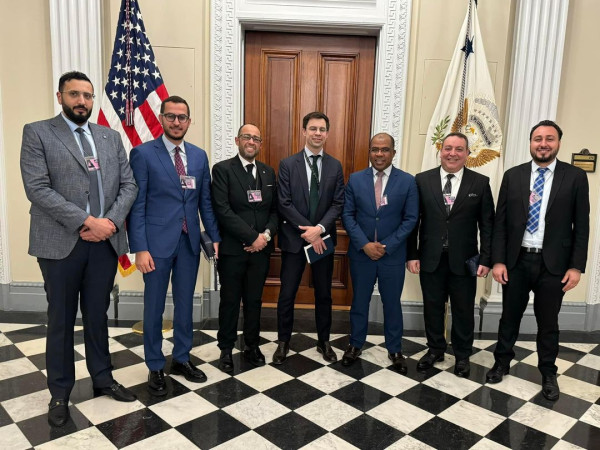- All Plans
- Yahoo Press Release
- Bloomberg Press Release + Yahoo Finance
- Business Insider Press Release
- Benzinga Press Release
- Digital Journal Press Release
- US Times Now Press Release
- AP News Press Release
- Yahoo Finance Press Release
- Street Insider Press Release
- MSN News Press Release
- USA Today Press Release
Strengthening Libyan-American Oil Partnerships: A Strategic Outlook


Libya, 24th Oct 2024 – The Libyan-American Trade and Investment Council has highlighted key strategies to enhance cooperation in the oil sector between Libya and the United States. Mustafa El Manea, a council member, emphasizes the importance of infrastructure development, partnerships with U.S. companies, legal reforms to attract investment, and the creation of special economic zones. These measures aim to boost Libya’s oil production and secure reliable energy supplies for global markets, reinforcing the bilateral relationship.
Amid the volatile situation in the Middle East and rising geopolitical tensions, Libya plays a pivotal role in securing global oil supplies. Although the United States has become less reliant on foreign oil due to increased shale oil production, the need for high-quality, stable oil from regions outside the Middle East persists. In this context, Libya’s importance as an oil exporter may increase, especially for the United States and Western countries that are seeking sustainable and secure alternatives away from areas of growing tension.
Despite its internal challenges, Libya presents a strategic opportunity to fill this gap. Given that Libyan oil is known for its high quality and relatively low production costs, it could become a key alternative to Middle Eastern oil.

Amid efforts to develop economic relations between Libya and the United States—most notably through the activation of the Trade and Investment Framework Agreement (TIFA) between the two countries and the imminent launch of the Libyan-American Trade and Investment Council—along with the National Oil Corporation’s (NOC) endeavors to increase Libya’s oil production to 2 million barrels per day, Libya can provide reliable supplies to global markets, including the U.S., particularly as global oil demand rises and the U.S. economy recovers post-COVID-19.
However, for Libya to meet the increasing global demand, including U.S. demand, it must focus on strategies that include:
1. Enhancing Infrastructure: Rehabilitating aging oil facilities and ports to speed up export processes.
2. Partnerships with U.S. Companies: Collaborations with American oil companies could help boost production through the advanced technologies these partnerships provide.
3. Ensuring Stability in International Contracts: Libya needs to create a secure and attractive legal environment for international investments. Key to this is abandoning traditional bureaucratic models of decision-making, which pass through complex administrative cycles involving various executive and oversight bodies. Additionally, the continuation of the EPSA contract model is no longer an incentive for companies and has led to missed opportunities for Libya to form oil partnerships with added value to the economy.
4. Establishing Special Economic Zones: Creating special economic zones with attractive tax and regulatory incentives would make Libya a hub for foreign investments, especially in the oil and gas sectors.
5. Developing Financing and Investment Programs: Providing financial facilities through special financing programs for new projects, along with government support to ensure the continuity and stability of cash flows for these projects.
6. Increasing Transparency and Disclosure: Enhancing transparency regarding production and exports, as well as ensuring justice and transparency in the allocation of oil revenues while keeping the sector neutral from political conflicts.
Despite the exceptional funding provided by the Government of National Unity to the oil sector over the past two years, exceeding 50 billion Libyan dinars (approximately 10 billion U.S. dollars), this is seen as a recovery budget for the sector after repeated shutdowns and general conditions that negatively affected its performance. Thanks to this exceptional funding, the NOC was able to restore production levels to over 1.2 million barrels per day. However, with the goal of increasing production to 2 million barrels per day, alongside developing gas production and transportation lines, it is expected that an initial budget exceeding 10 billion U.S. dollars will be required, particularly in areas such as old oil fields and improving maritime export capabilities. This figure could rise to over 30 billion U.S. dollars in subsequent phases.
In conclusion, Libyan-American cooperation in this field could strengthen bilateral relations and contribute to stabilizing global energy supplies.
Mustafa El Manea
Member of the Libyan-American Trade and Investment Council
Media Contact
Organization: Libyan-American Trade and Investment Council
Contact Person: Mustafa El Manea
Website: https://lia.ly
Email: Send Email
Contact Number: +218217142222
Country: Libya
Release Id: 24102418940
